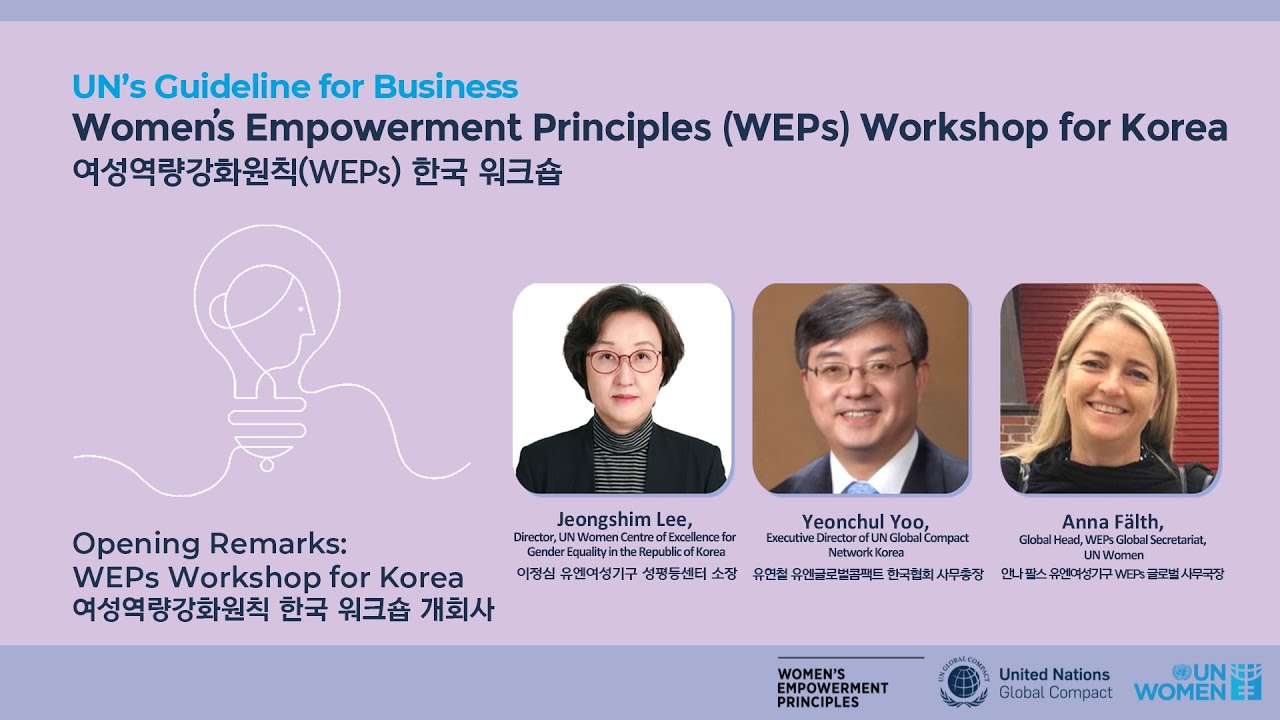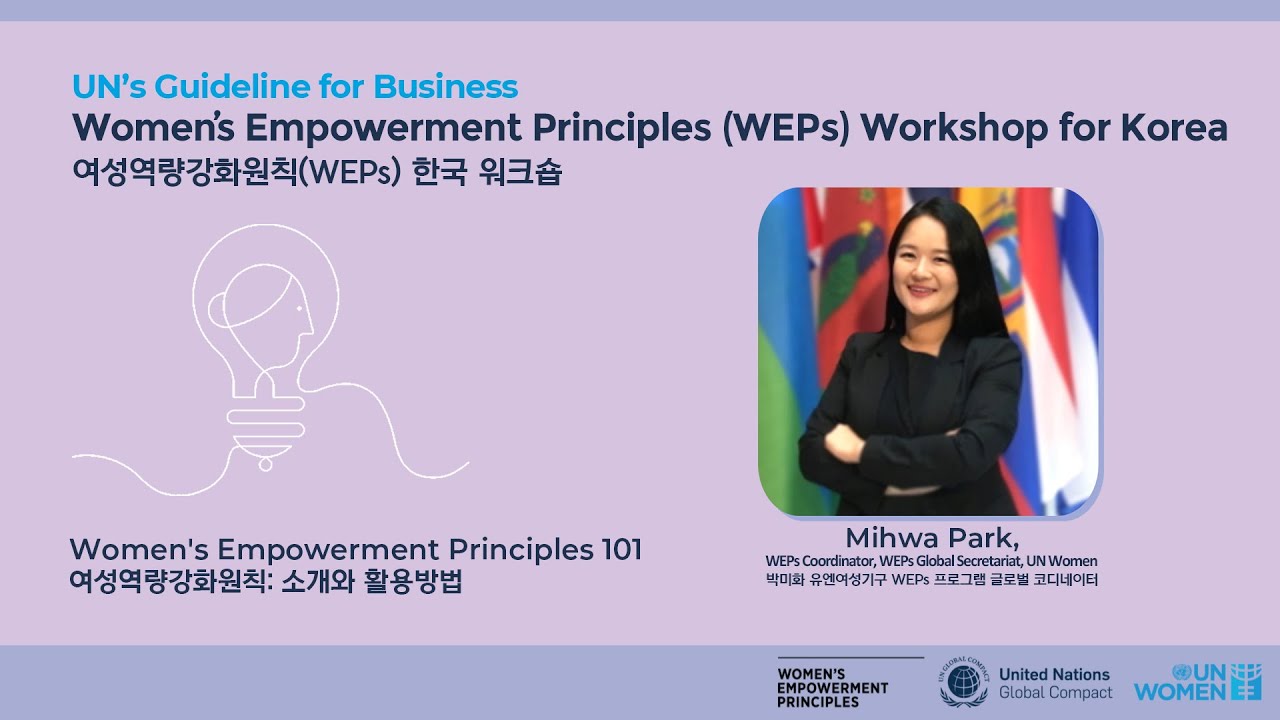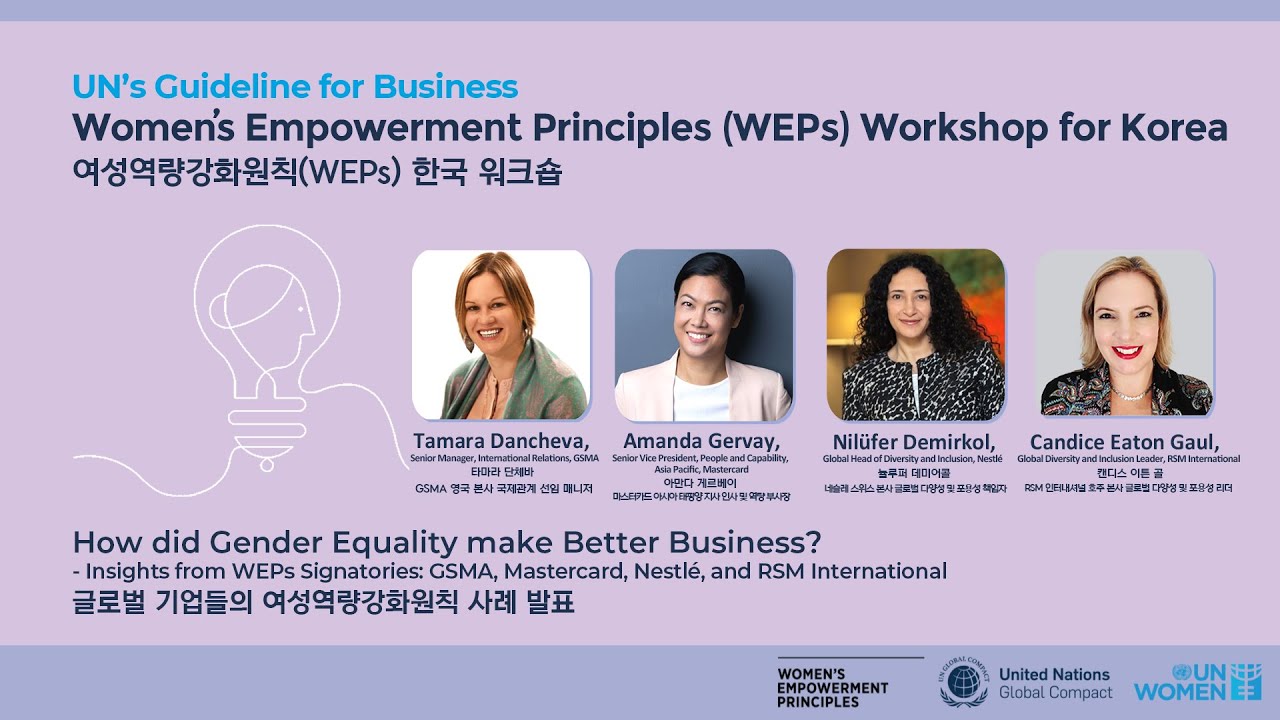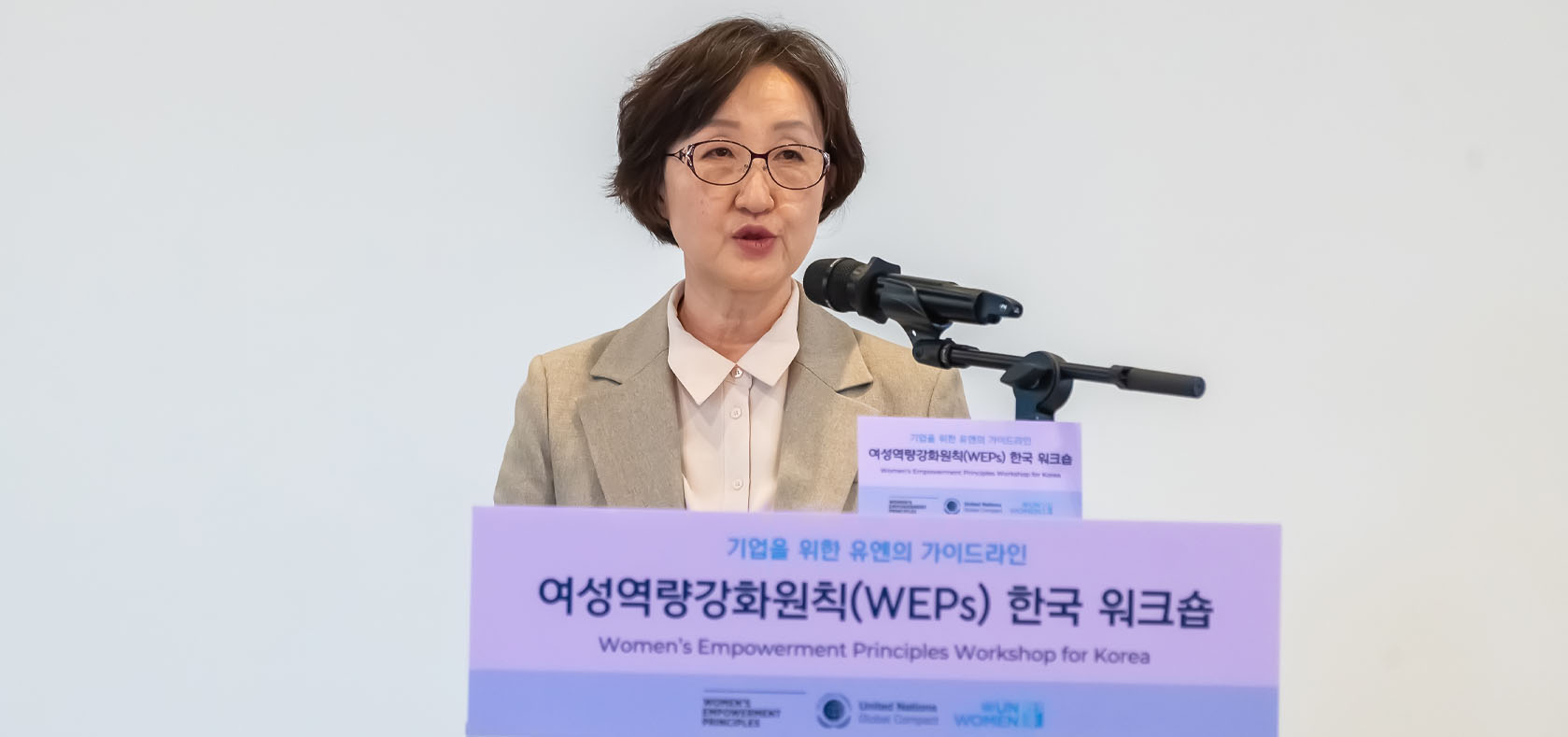English | 한국어
Seoul, Republic of Korea — "We want to gain insights from the United Nations on how companies can internalize efforts for gender equality," one participant noted in the online feedback system on why they joined UN Women’s workshop in Seoul on the Women’s Empowerment Principles (WEPs).
Organized by the UN Women Centre of Excellence for Gender Equality (the Centre), in partnership with the UN Global Compact Network Korea, the event brought together some 70 business representatives responsible for human resources as well as corporate diversity, equality and inclusion strategies, to discuss concrete ways to advance gender equality in the private sector through WEPs. As the first of its kind in the Republic of Korea (ROK), the WEPs workshop was filled with enthusiasm from participants.
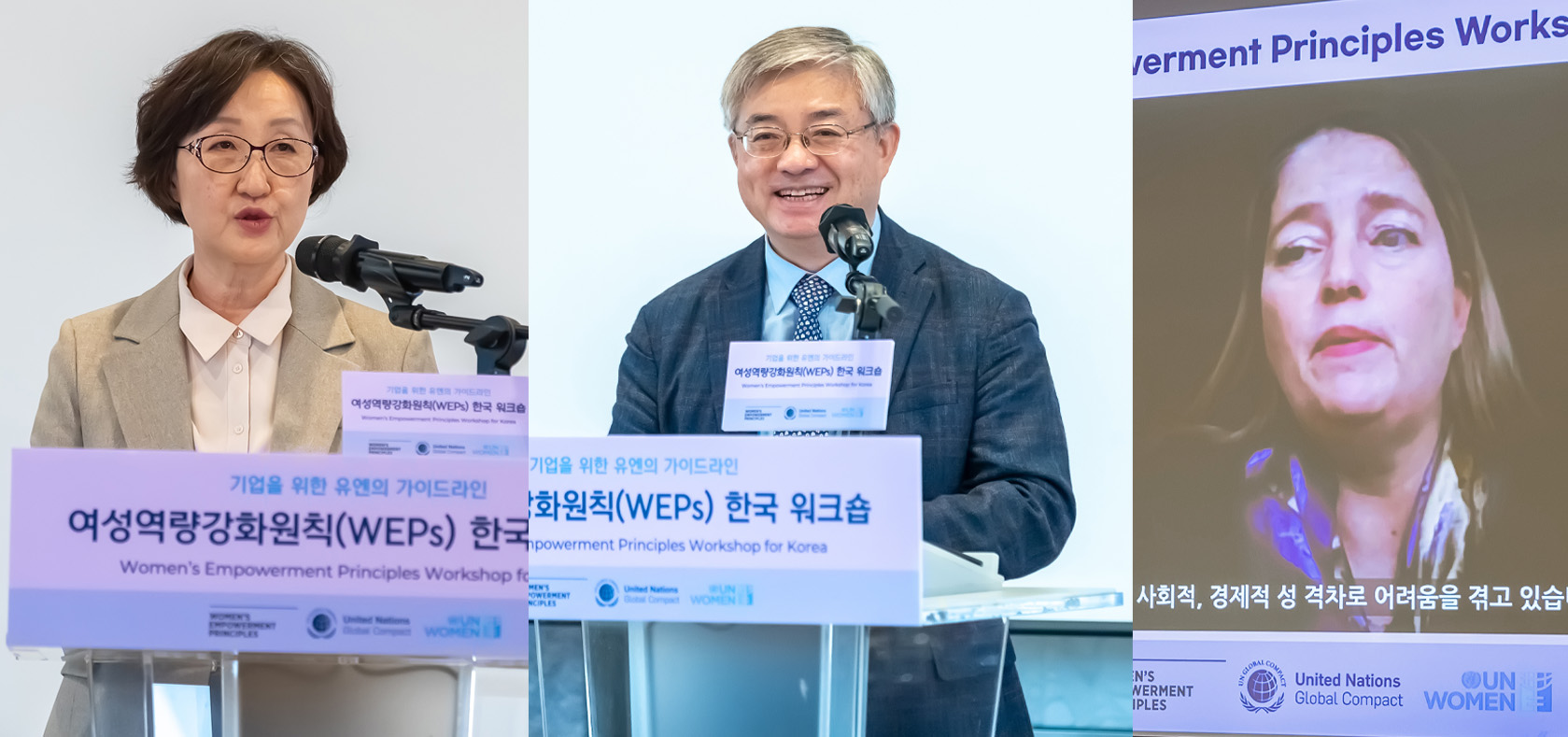
[from left] Jeongshim Lee, director of the UN Women Centre of Excellence for Gender Equality; Yeoncheol Yoo, secretary-general of UN Global Compact Network Korea; Anna Fälth, director of the UN Women WEPs Global Secretariat. Photo: UN Women/Jaeyeon Jung
Through the workshop, the Centre provided an opportunity for Korean as well as international businesses in ROK to learn about how the adoption and implementation of WEPs can bring value to companies. WEPs is a joint initiative by UN Women and UN Global Compact, launched in 2010, which outlines seven concrete ways for companies to achieve gender equality in the workplace, marketplace, and community.
The event began with opening remarks from Centre Director Jeongshim Lee: “We believe that companies can take the lead in achieving gender equality through innovation, employment, and finance. Such efforts will benefit not only women and men who work for companies, families, and communities but also the social responsibility and financial performance of companies."
Yeon-chul Yoo, Secretary-General of the United Nations Global Compact Network Korea, stated that “I hope that this event today will be a signal to raise awareness of the importance of gender equality and diversity and inclusion within companies and that it will be an opportunity to create substantial change by leading active sharing and discussion."
Anna Fälth, Global Head, WEPs Secretariat at UN Women HQ, said, “We welcome Korean companies to the global WEPs network of nearly 8,000 signatories. To be a leader in today's global market, gender equality needs to be at the core of business models. It is what stakeholders – investors, business partners, talent, consumers – expect from companies.”
As the main coordinator and resource person of the workshop, Mihwa Park, Global Programme Manager for WEPs at UN Women, gave an in-depth presentation on WEPs, stressing the necessity and significance of each principle. She explained that companies striving for gender equality ultimately become the ones where talents prefer to work, consumers prefer to purchase from, and investors prefer to invest in, leading to long-term profit growth.
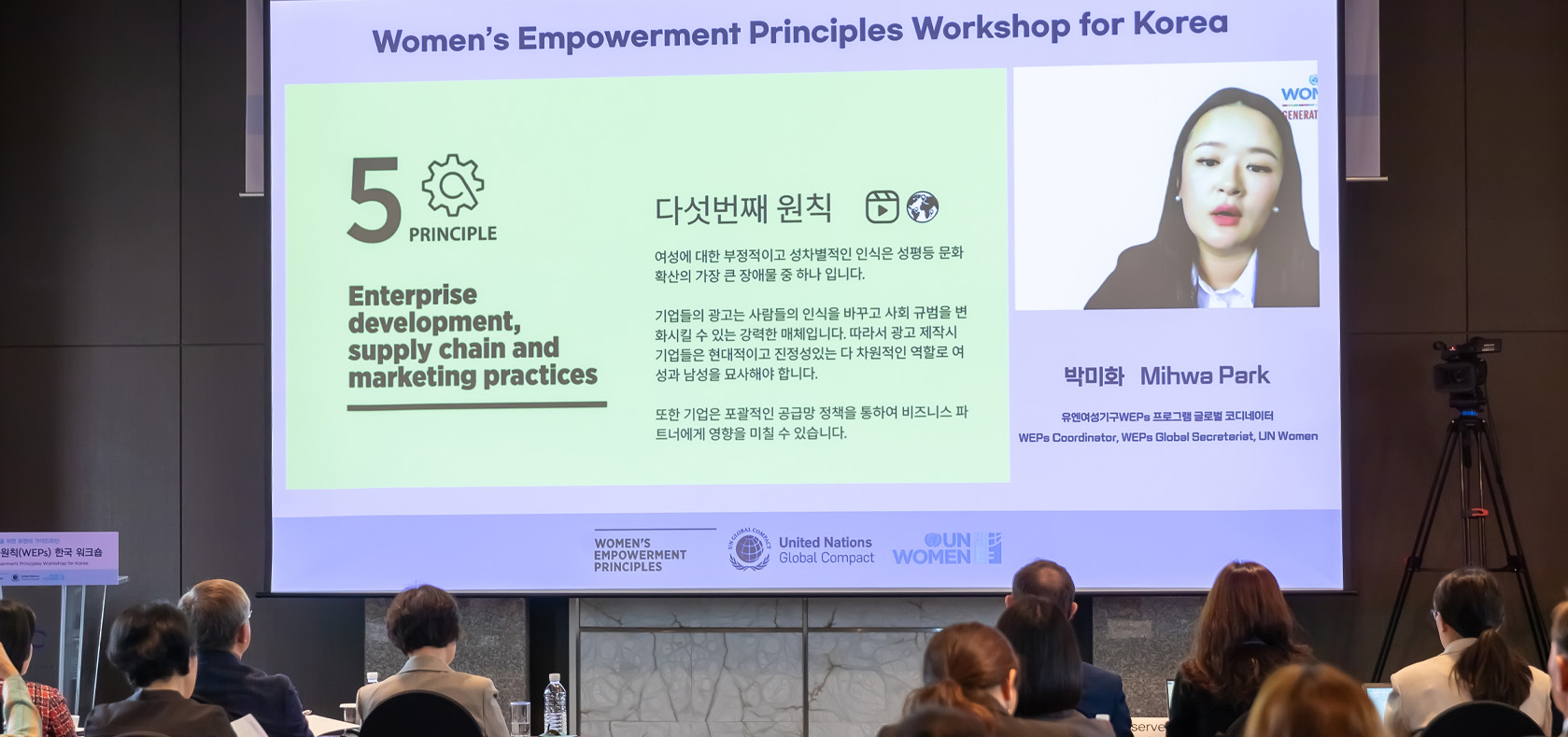
Mihwa Park, WEPs coordinator, WEPs Global Secretariat, UN Women, delivers a lecture. Photo: UN Women/Jaeyeon Jung
At the workshop, panellists from four global companies, who are WEPs signatories, shared their company’s experience with implementing WEPs principles.
Tamara Dancheva, Senior Manager for International Relations at the Global System for Mobile Communications Association (GSMA), explained how its corporate executives have taken the lead in changing the corporate culture. For example, the "One GSMA" forum, an employee-led forum discussing diversity and inclusion, is supported by the Chief Financial Officer, Chief Regulatory Officer, and Head of Human Resources. "The decision to join WEPs was also led by our top leadership, headed by the huge feminist Mats Granryd, the Director-General of GSMA," Dancheva noted.
Amanda Gervay, Senior Vice President for People and Capability at the Asia Pacific office of Mastercard, presented how Mastercard runs a female leadership programme in order to develop career paths for women as well as to amplify their voices within the organization. "We provide training through simulations of real-life scenarios to our vice-president level and above, allowing them to practice leadership skills," Gervay explained. "We do aim to have them ready for board seats in the next two or three years."
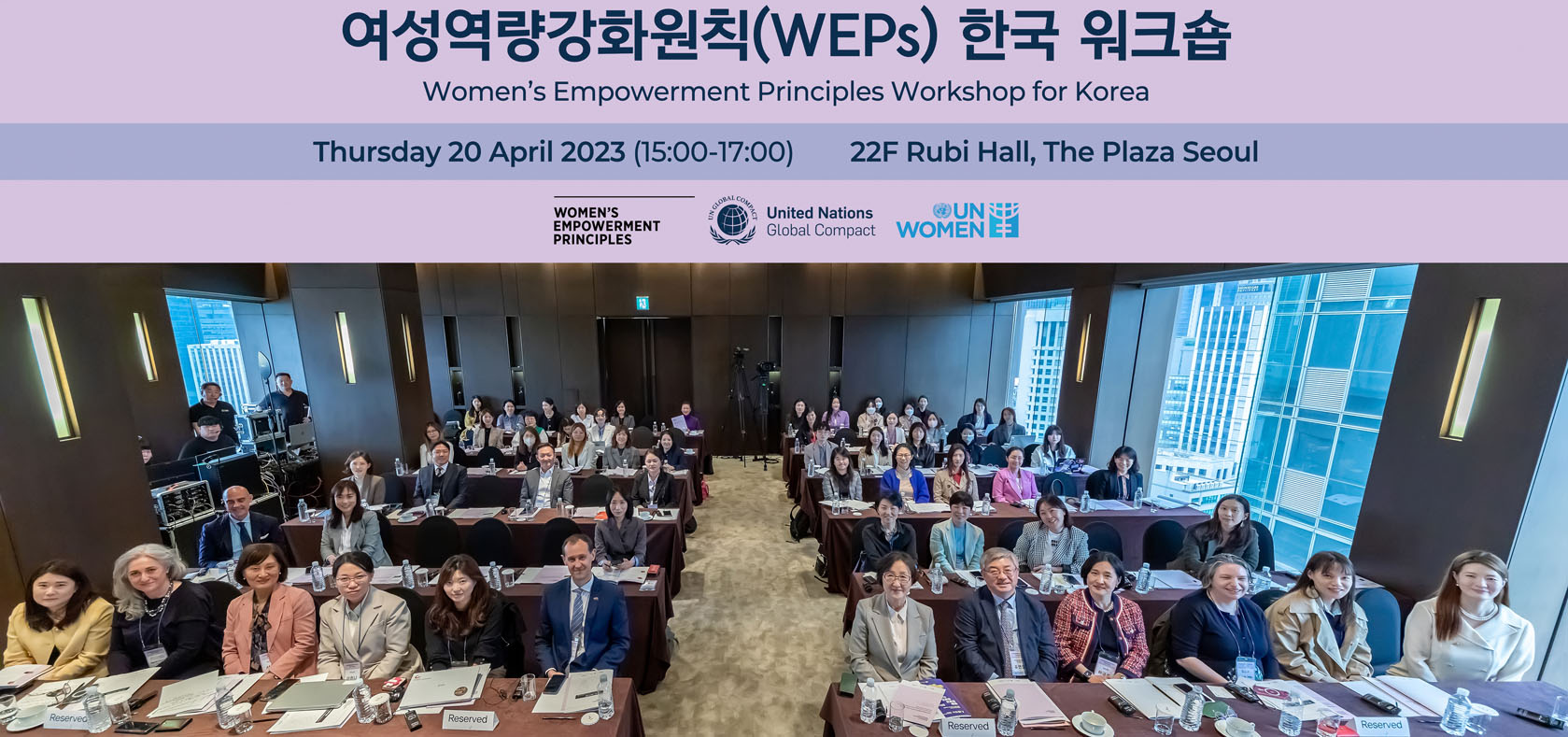
Approximately 70 representatives from Korea-based companies and institutions participate in the WEPs workshop on April 20. Photo: UN Women/Jaeyeon Jung
Nilüfer Demirkol, Global Head of Diversity and Inclusion at Nestlé, talked about their gender equality efforts within the supply chain. Nespresso, one of Nestlé's brands, for instance, integrated a gender perspective into their own programmes designed for improving the livelihoods of coffee farmers by introducing a gender-analysis tool. “This tool is a gender data set which was designed to provide insights that enable action to be taken, ensuring women have access to resources and empowering them to participate in the decision-making process," Demirkol added.
Lastly, Candice Eaton Gaul, Global Diversity and Inclusion Leader at RSM International, explained how the company positioned gender equality as a critical issue at the board level, recognizing that diversity provides business opportunities, and when not properly implemented, how the company can face business as well as reputation risks.
After the presentations, one participant asked how to generate momentum when women colleagues themselves are not interested in women’s empowerment issues and support the status quo as a result. "Access to opportunity is crucial because it provides individuals with the chance to explore alternative paths, empowering them to shape their future, define their aspirations, and determine their personal development journey,” Gaul responded based on her experience.
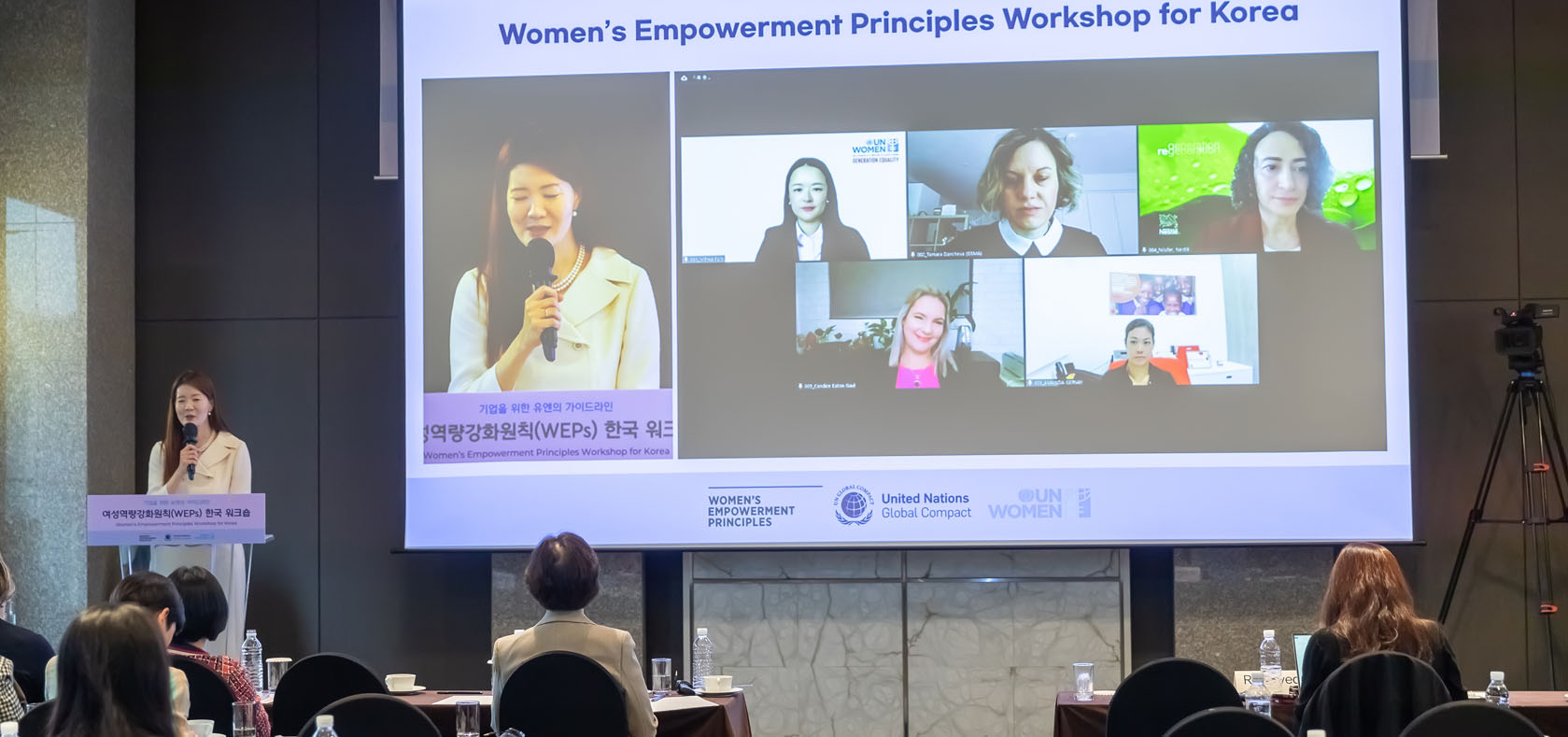
Mihwa Park; Tamara Dancheva; Amanda Gervey; Nilüfer Demirkol; Candice Eaton Gaul answer questions in the Q&A sessions. Photo: UN Women/Jaeyeon Jung
On another question pertaining to increasing women’s senior representation, panellists also stressed the importance of promoting women’s leadership in positions of influence. "There is a specific position in companies where women are promoted in large numbers, but compared to positions predominantly occupied by men, their influence is low. It is important not only to increase the number of women executives but also to promote them to key positions where they can exert influence,” Park explained.
Initially scheduled for two hours, the workshop ran over by 40 minutes due to lively interactions between the speakers and participants. In response to the high demand, the UN Women Centre in Seoul plans to organize follow-up events for the private sector to continue the discussion on gender equality and women’s empowerment through WEPs.




